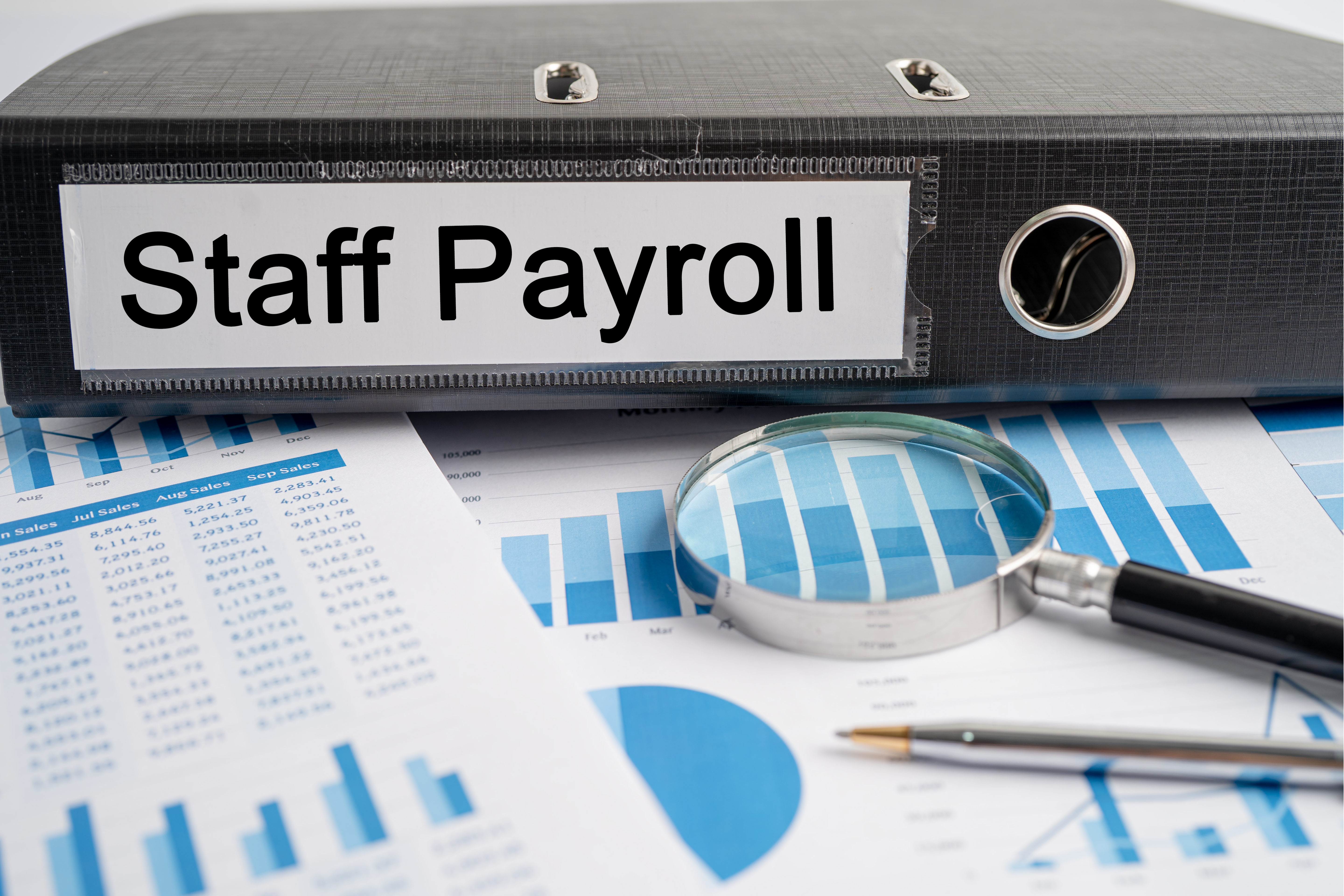UK Tax Codes—What Do They Mean?

Payroll is most certainly on your mind if you are an owner of a business. Whether you process your payroll internally or externally, you must do it routinely if you have a workforce.
Ensuring that the appropriate tax codes apply to your workers is a crucial component of every payroll process. This determines how much tax each employee will pay. That’s why even small business owners should look out for outsourcing payroll services and avail the benefits.
Even while tax codes are just a brief, reasonably straightforward arrangement of a few digits and letters, understanding how they function is helpful for every business owner.
This article will examine correct tax code make-up, the working of income tax codes, when tax codes change, a list of UK tax codes, and more.

Tax code refers to an arrangement of numerals and alphabets that the tax authority in the UK uses to indicate the amount of income tax that an individual must pay by their income and particular circumstances.
Even in the most favourable of circumstances, understanding tax can be challenging because of self-assessment, operational costs, or the numerous UK tax codes, each with a remarkable effect.
So let’s get straight to the point and give you the knowledge you’re probably searching for: a straightforward explanation of UK tax codes that will help you grasp what yours entails.
What is a Tax Code?

Payroll and Pension teams utilise tax codes, a sequence of numerals and letters, to determine the amount of tax to be deducted from employee paychecks or pension costs.
Although it can look like a trivial collection of letters and digits, the tax code used for each employee is significant.
One incorrect digit can significantly impact your employees take-home earnings.
The employees tax code will inform the employer how much income tax to deduct from your pay or pensions if they follow the PAYE (Pay As You Earn) scheme.
HMRC will communicate the appropriate tax code to the employees company or pension provider. It is the responsibility of the employee to check it is correct.
Using an incorrect tax code may result in the employee paying too much or too little tax.
Countless people are affected by errors caused by the incorrect tax code being operated, causing large tax bills or refunds to be due.
How does a Tax Code Work?

The majority of UK taxpayers are eligible for a personal allowance. The standard personal allowance was £12,570 in 2022–2023. If your workers do not have other income streams, they are exempt from paying taxes on job salaries up to the personal allowance figure. The majority of tax codes start here.
The annual allowance is evenly distributed under the Pay As You Earn (PAYE) model. This model disperses the cost of an individual’s income tax throughout the tax period (which begins on 6 April of a given year and ends on 5 April of the following year).
The primary tax code is subject to modification. There might be additional allowances to add to the main personal allowance, raising the amount they can earn before paying tax and therefore reducing the amount of tax they pay on their salary.
Deductions like tax underpayments could also reduce the personal tax free pay allowance allocated via the tax code in a tax year, which then raises the amount of tax an employee will pay on their earnings.
The tax-free sum is converted into a tax code and then decreased or increased as required. The simplest explanation on how this converts to a tax code is that HMRC remove the last digit and replace it with a letter.
The letters provide instructions to payroll providers; for instance, each year, HMRC will provide businesses with instructions on how to update all “L” codes for the latest personal allowance number to carry over into the upcoming tax year.
There are several possible alphanumeric characters, each with a unique significance. Multiple tax codes are also plausible; this can be true if you hold well over one job or earn a pension.
What does your Tax Code mean?
Tax-free compensation: A person’s tax-free personal allowance is based on a range of different elements. There is the standard allowance, but also extra allowances based on personal circumstances, such as civil partnerships sharing/ marriage allowances, registered blind, working from home allowances etc.
Also payments to pension or charitable donations can be deducted from gross pay before tax is calculated, although this does not affect the tax code.
Unpaid wages and taxes: A person may owe tax from a previous tax year, which will affect the tax code issued in the current year, this could be due to taxable benefits such as a company vehicle, health insurance, or housing, that was not reported to HMRC until the end of the tax year.
Once these values are determined, any overdue taxes or employment benefits will reduce the tax-free amount. A final digit will be taken out of the final number, which constitutes the numerical portion of any tax code.
How are tax codes structured?
Income tax codes, UK are structured using a combination of letters and numbers. The numbers represent a person's Personal Allowance, and the letters reflect a person's situation and how it affects their Personal Allowance.
The Numbers Part Meaning
The following are the components of a tax code’s numbers:
- The amount of an individual’s tax-free annual allowance (determined by HMRC).
- The total of any taxed job-related perks in addition to the total income they have earned but haven’t yet paid taxes on.
- Subtracting their tax-free allowance from the earnings that have not been taxed.
- The deletion of the final digit.
The Letters Part Meaning
Each person’s specific circumstances determine the alphabet in a tax code. When the income tax code for your worker ends with “W1” or “M1,” it is referred to as an emergency tax code.
- Emergency tax codes like W1 and M1 can be found towards the end of a worker’s tax code, for instance, “588L W1” or “588L M1.” Be sure only to consider the amount of money your worker has received during the most recent payment period when calculating their tax.
- When an individual’s allowance is less than the deductions owing for business perks, pension schemes, or tax payable from prior years, the letter K is included within their tax code.
Summary of tax codes
| Tax Code | Summary |
|---|---|
| BR | BR stands for basic rate. All your income is taxed at the basic rate of 20% with no personal allowance. |
| C, C0T, CBR, CD0, CD1 | These are Welsh equivalent standard codes. |
| D0 | This is used when a person has a dual income or pension. All income above the personal allowance will be taxed at the higher rate of 40% |
| D1 | This means that all income will be taxed at an additional 45%. It is used when income comes from more than one job or pension. |
| K | This indicates the individual has income or benefits that are subjected to tax, but their total income is less than personal allowance. |
| L | This code indicates that the individual is eligible for personal allowance. |
| M | This is a married allowance, which means you have received 10% of your partner's personal allowance. |
| N | N is used when an individual is transferring a part of their personal allowance to their spouse or civil partner. |
| T | T is used when there are complex tax circumstances, and HRMC needs to apply specific tax calculations to finalise it. |
| 0T | 0T means you have zero personal allowance for your income source. |
| NT | This means you don't have to pay any tax for this income. |
| S, S0T, SBR, SD0, SD1, SD2, SD3 | These are the Scottish equivalent of English tax codes but have tax rates according to Scotland's standards. |
| W1 | This applies to weekly salary earners. |
| M1 | This applies to monthly salary earners. |
| X | This is applied when HMRC doesn't have sufficient information. |
How do I find my Tax Code?
An employee’s tax code will be visible on their pay slip, the coding notice from HMRC, the P60, or perhaps the P45. To obtain your current year’s code, one can use the Check Your Income Tax online tool in your Personal Tax Account. Furthermore, you may also be able to see your tax code for:
- An earlier tax year
- The upcoming tax year
If you don’t yet have an account, you will be prompted to join Government Gateway.
After logging in, you may also view:
- If the tax laws have changed
- Tax amount you’re most likely to incur
Your paycheck or an email from HMRC may also contain your tax code. Read about your national insurance category.
Why do Tax Codes change?
A tax code may be updated by HMRC if:
- You begin receiving earnings from a second job or retirement pension.
- Your company notifies HMRC when you start or discontinue receiving benefits from the employment.
- Your government benefits are taxed.
- You apply for marriage assistance.
- You list the costs for which you receive tax relief.
You might also be given an emergency tax code if you switch jobs.
What to do if you have the Wrong Tax Code?
You may evaluate if your tax code is probable to be correct given your income and circumstances now that you know what it entails. You will need to check with HMRC if your tax code does not look quite right.
A change in your income or revenue that might have impacted your tax code can also be reported to HMRC.
How to Solve Tax Code Problems?
Tax laws can cause problems for both firms and workers. The most frequent issues for employees are when emergency tax codes are applied or their situation has altered. Employees must be careful to notify HMRC of any modifications that may impact their tax code. This can be done online.
It’s crucial to ensure that you use the correct tax codes for your employees; however, you must only use the tax codes notified by HMRC. Visit here to know what you should do if you missed your staging date.
Things can go wrong, and sometimes you might be forced to deal with a tax code problem.
An essential factor as an employer is to use tax codes that are issued to the business by HMRC.
You must be able to protect yourself in the case of an inquiry from either HMRC or an employee challenging you concerning a tax code error. If you are worried that you are not able to explain tax and deal with tax code changes and implementation, you may want to use a dependable payroll supplier, like Dhpayroll, as their range of knowledge and experience is extensive.








Comments